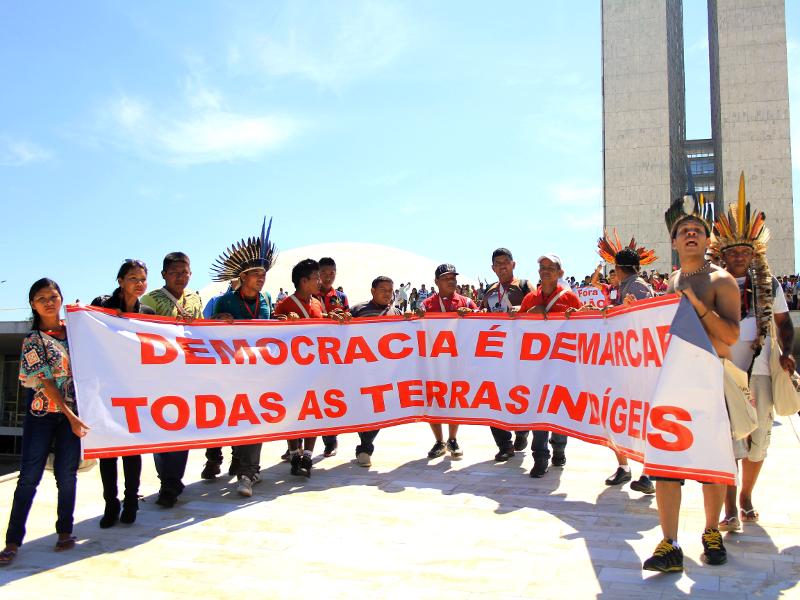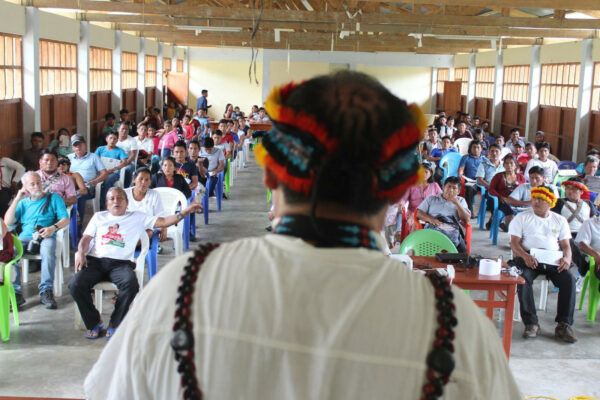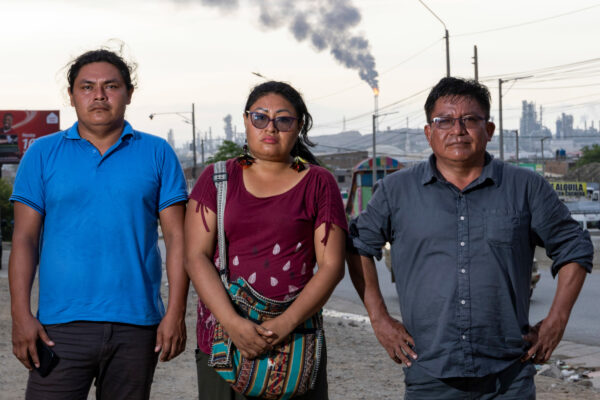
2015 could only be defined as a bad year for Brazil. Economic meltdown, political crisis, social adversity, and environmental destruction defined the last twelve months. Yet rather than striking out in new directions as 2015 drew to a close, the Brazilian government doubled down on its failing socio-economic model, ushering in a new wave of conflict and calamity in the Amazon.
In a year where the construction of the notorious Belo Monte mega-dam made headlines for inciting social and environmental chaos on the Xingu River, the government announced its determination to repeat this disaster on the Tapajós River with a series of new, large dams.
Meanwhile, the appalling Bento Rodrigues dam break in November, which smothered the Doce River with hundreds of miles of mud laced with toxic mining residues, has not slowed a movement aimed at slashing environmental protections in the country. New proposed “fast track” legislation would streamline approval of further socio-environmental disasters across Brazil, particularly in the Amazon where dozens of new “strategic” projects are proposed.
And while forest fires raged across the country, decimating indigenous territories like that of the Ka’apor and Guajajara peoples in the Amazonian state of Maranhão, Brazil’s Congress moved a step closer to stripping native land rights from the Constitution with the PEC 215 constitutional amendment. In sum, 2015 was a very bad year for anyone concerned with human rights and environmental sanity in Brazil. As one environmentalist Brazilian lawmaker put it, “Recently, our victories have been to delay our defeats.”
Sadly, 2016 promises more the same. Closing the year in fitting fashion, the head of Brazil’s powerful Ministry of Mines and Energy (MME) Eduardo Braga announced on December 26th that the government intends to auction the construction of the São Luiz do Tapajós mega-dam in the second half of 2016.
“All of the [the dam’s] environmental issues are measured and accounted for with [environmental impact] studies,” claimed Braga. “The only pending issue rests with the [national indigenous agency] FUNAI. The indigenous question has yet to be equated, but it is possible to resolve this impasse. It is clear that it will demand public will, but we understand that this is a responsible project.”
In the brazenly arrogant and dismissive discourse that defines the MME, Braga went on to declare that the “environmental question is resolved, only the indigenous question remains.” His statements demonstrate the government’s renewed effort to create a fait accompli for what is an illegal, immoral, and unnecessary project, just as it did for Belo Monte. The absurd claim that “public will” has any role to play in the MME’s closed-door and profoundly corrupt planning process further reveals the Orwellian tactics the government will employ to fire up its Amazon dam-building steamroller once again.
2016 will not be an easy year for indigenous peoples and environmental defenders in Brazil. However, the organizing and resistance of those opposed to the Brazilian government’s development agenda has risen apace with 2015’s destructive tendencies.
On the Tapajós River, the Munduruku people have sworn to defend their lands and rivers with their lives, most recently when receiving the Equator Prize in Paris during the COP 21 conference. FUNAI technicians are also laying a roadblock to the government steamroller, maintaining the São Luiz do Tapajós mega-dam’s unviability due to its myriad of grave and irreversible impacts upon the Munduruku.
In Brasilia, indigenous mobilizations and protests are growing in frequency and intensity, pushing back against the agribusiness-led assault on native land rights. Inside Congress, progressive lawmakers succeeded in blocking a 2015 vote on “fast track” environmental licensing legislation, providing a glimmer of hope that such alarming political trends could be pushed back through concerted action.
One thing is clear for 2016: intense conflict and spirited resistance will be defining features of Brazil’s front line struggles for rights and environmental justice. Local movements have no choice but to rise to the occasion.













